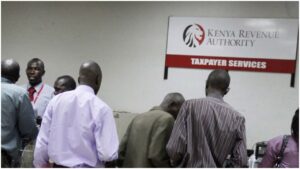Organizational Lapses and Civil Society Exclusion Cast Shadow on Africa Climate Summit

As African leaders prepared to gather for the forthcoming Africa Climate Summit (ACS), a collective of non-state actors representing diverse groups across sectors expressed deep concerns and disappointment regarding the summit’s preparation and agenda. They cited organizational shortcomings, apparent exclusion of civil society, and the dominance of Western interests as potential issues that could mar the summit.
According to the collective, one glaring manifestation of organizational confusion and inertia was observed in the accreditation process. Delegates, they said, were often shuttled from the accreditation venue to the Ministry of Environment for a clearance process, causing unnecessary exhaustion and delays. Furthermore, the collective believed that this confusion would likely affect Africa’s participation in another critical UNFCCC process, the Africa Climate Week, as both events shared the same accreditation process.
The summit organizers, in their view, had failed to ensure adequate participation and consultation with non-state actors, especially those from vulnerable and marginalized communities. They noted the conspicuous absence of African parliamentarians from the consultation process, despite their crucial role in representation, legislation, and oversight, as evident in processes such as the ACS.
The collective also expressed deep concern about the summit’s agenda, which they felt was overly inclined toward promoting market-based solutions and involving Transnational Corporations, while neglecting the needs and rights of both people and the planet. They urged President Ruto and the African Union to reconsider the agenda, allowing more space for dialogue and action on climate justice, adaptation, finance, loss and damage, and human rights – issues they considered fundamental to Africa’s well-being but believed had been pushed to the periphery.
According to the collective, this opportunity to address Africa’s climate crisis and amplify the voices and solutions of African citizens, who had long awaited such a gathering, should not be missed. They earnestly implored the organizers to ensure that the summit was genuinely inclusive, transparent, and accountable.
While recognizing the vital role non-state actors played in climate response, the collective emphasized that no single stakeholder, whether governmental or non-governmental, could singlehandedly combat the threats posed by the climate crisis. They called upon African governments and leaders to engage with non-state actors as equal partners.
The collective’s demands were driven by the alarming devastation of climate change on the continent and the failure of developed countries responsible for this devastation to provide adequate support to the most vulnerable countries and communities. These demands, they said, aligned with the shared vision of the Africa Climate Summit Non-State Actors Steering Committee (ACS-NSA) and underscored the urgent need to address the impact of the climate crisis on the continent and its inhabitants.
They reported that a document outlining their minimum expectations from the summit had been issued and had garnered support from over 2,294 groups and individuals across the continent. The Africa Climate Summit, they believed, offered a unique opportunity for the continent to highlight the urgency of addressing the climate emergency and protecting the rights and livelihoods of its citizens. It also served as a platform to build momentum and solidarity for the African agenda at COP28 and beyond, emphasizing common interests and aspirations in achieving a low-carbon, climate-resilient, and inclusive development.
The collective reported that ACS-NSA was a pan-African platform advocating for a pro-African agenda in all critical spaces at the summit and beyond. Supported by the Pan-African Climate Justice Alliance (PACJA), ACS-NSA was organized into clusters representing regional CSOs, Indigenous People, Faith Actors, Trade Unions, the African Private Sector, Farmer Organizations, Women and Gender Constituencies, Youth Movements, Academia and Research Institutions, Foundations, and Finance Institutions.
They mentioned that ACS-NSA had been tirelessly advocating for a just and equitable transition to a low-carbon, climate-resilient future that respected the rights and dignity of all people. Despite their engagements with the Kenyan government, the African Union Commission, and the ClimDev-Africa Initiative, their concern persisted that the summit might fall short of their aspirations. Therefore, ACS-NSA had formulated a set of





